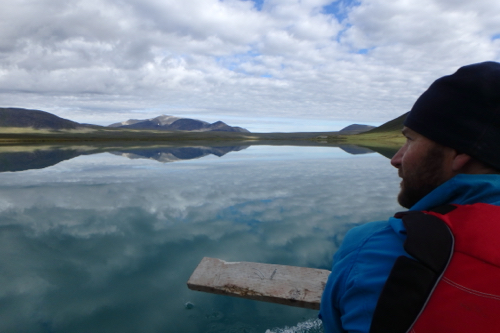 Chris looks out over Lake Peters on a calm day
Chris looks out over Lake Peters on a calm day
Chris Benson is a second year Geology Masters student at Northern Arizona University. His background in outdoor education, including guiding trips up Alaskan mountains, was a huge asset to our expedition. His calm and professional attitude helped me navigate the glacier with microspikes, and his bag of gear (and ability to use it) helped us almost every day. Having another person trained in wilderness medicine was key when I hurt myself and I will be forever grateful for Chris' diligence in irrigating the wound, picking out lichen, and expertly closing it.
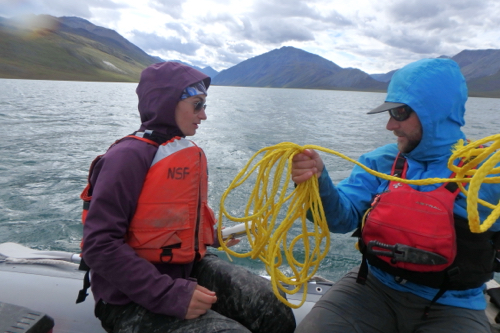 Chris Benson organizing rope, one of the many skills he taught me, while doing fieldwork on Lake Peters.
Chris Benson organizing rope, one of the many skills he taught me, while doing fieldwork on Lake Peters.
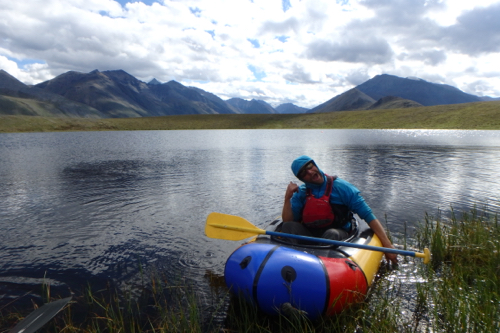 Chris prepares to collect a sediment trap from his packraft.
Chris prepares to collect a sediment trap from his packraft.
What are your broad scientific interests?
Earth sciences that operate on long time scales. Thinking BIG. Landscape and geomorphology. I am enthralled by ideas about things like ice ages, and how different a place could look as recently as twelve thousand years ago.Why did you become a scientist?
I've never identified as a scientist, but I like to make observations and was inspired by my middle school science teacher, who always said: "The greatest discoveries are yet to be made." A lot of things, when broken down, are more complex than they initially appear. I like learning about things that are real, truth based, and being skeptical, curious, objective. Science is an equal playing field and ever-changing.
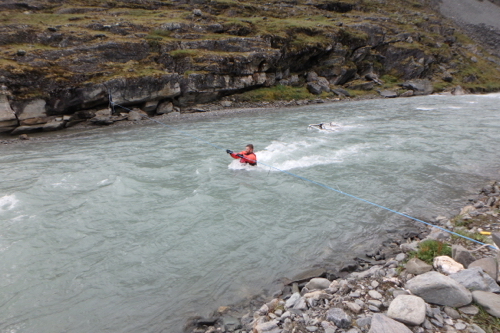 Chris tests a tag line, which will be used to measure discharge of Carnivore Creek.
Chris tests a tag line, which will be used to measure discharge of Carnivore Creek.
What do you like most about your job?
Getting the opportunity to think long and hard about a beautiful place and how it has changed over thousands of years. It seems like we're looking at old stuff, but it is actually very new, geologically. Getting paid to learn!What do you like least about your job?
Spending most of my time inside. My research requires lots of lab, reading, and writing time.What was your favorite day of fieldwork?
Going to the glacier and seeing how much it ablated. Having put the stakes in, it was rewarding to go back and remove them. It was staggering to see the ice loss first hand.
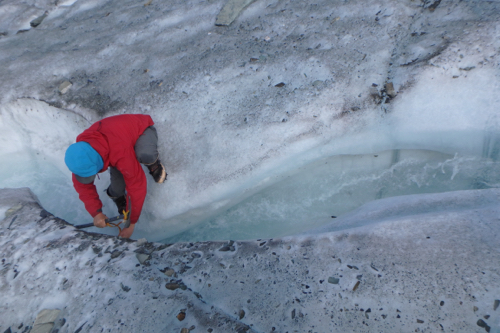 Chris uses an ice ax to sample glacial ice on Chamberlin glacier.
Chris uses an ice ax to sample glacial ice on Chamberlin glacier.
- Is there anything else that I didn't ask that you'd like to tell my readers and students?
For adults: Lake Peters is and incredible place with amazing research potential. It's important to monitor such places to understand how things might be changing. For students: Anyone can do science. It's just about paying attention, making observations, and being curious. Don't be intimidated or self-limited, even if you don't think you're good at math or science!
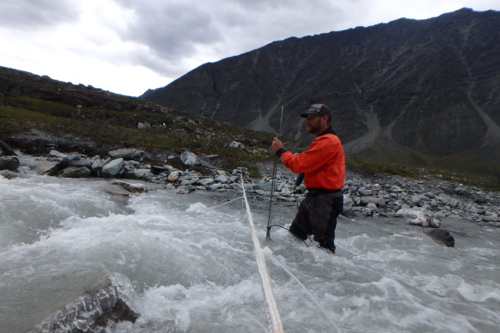 Chris measures discharge of GL3, a tributary of Carnivore Creek.
Chris measures discharge of GL3, a tributary of Carnivore Creek.
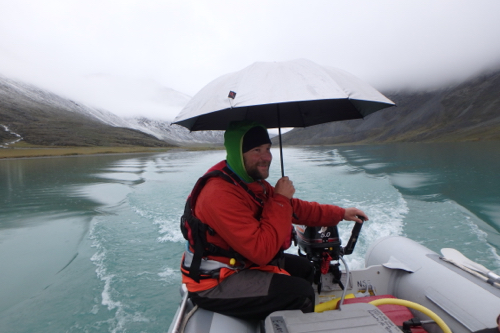 Chris drives the zodiac while promoting the use of the field umbrella.
Chris drives the zodiac while promoting the use of the field umbrella.
This is the second of three team profiles, created from interviews after our field experience. Answers are in the scientists' words when possible, but I did edit for readability and length where necessary.


Add new comment